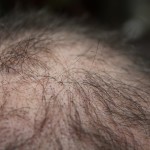 Let me tell you a very interesting fact. Usually, you lose a lot less amount of hair as compared to the amount of hair that you grow. This is why you usually don’t have a noticeable hair loss case. However, this can be different sometimes!
Let me tell you a very interesting fact. Usually, you lose a lot less amount of hair as compared to the amount of hair that you grow. This is why you usually don’t have a noticeable hair loss case. However, this can be different sometimes!
One such case is after the bariatric surgery. The most common complaint of this surgery is the horrible hair loss after surgery. There is a wide range of reasons of hair loss. However, the most common hair loss that occurs after this weight loss surgery is medically termed as the telogen effluvium. It is basically a scattered hair loss and the causes of this hair fall can be non nutritional and nutritional as well.
Factors that cause hair loss:
Throughout our lives, we are always losing and growing hair. The factors that eventually lead to telogen effluvium are various. Some of the most common factors are mentioned here. The hair loss can be caused by high fever, a major surgery, severe infection, and chronic illnesses such as a terminal liver disease or a hormonal disruption as a result of childbirth, pregnancy or the discontinuation of therapy for estrogen. Other non nutritional factors that might cause this shift are a physical trauma or a severe loss of weight. The nutritional factors that cause this hair loss is crash dieting, low intake of protein, anorexia, deficiency of zinc or iron, heavy metal toxicity and some medicines such as anticoagulants and immunizers.
The importance of a good nutrition:
Apart from nutritional issues, patients of a bariatric surgery already have two big risks. One is the risk of a major surgery while the other is a rapid weight loss after surgery. These two risks only account for a good amount of hair loss after surgery. So even if there was no nutritional issue, rapid hair loss would still occur.
In the absence of a dietary reason of hair loss, the hair loss doesn’t last for a longer time period. The maximum period it could occur is for six months. In telogen effluvium, no damage is caused to the hair follicle which ensures the re-growth of hair. For the same reason, doctors assure their patients that with time and patience they will get their hair back provided that they maintain a good nutritional intake.
Conclusion:
The problem of hair loss can be quite worrying for a patient of bariatric surgery. Many patients of this surgery try to have a good nutrition to stop the hair fall however; there is no way of preventing this hair fall, because it is the caused by rapid loss of weight and surgery. Later however, hair loss can be a good indicator of a nutrition problem especially deficiency of iron. This sign can also be useful clinically. It is important to educate the patients about hair loss and its possible causes. This can help them in making good choices and will also help to avoid wasting a good amount of money on gimmicks that don’t really work.
